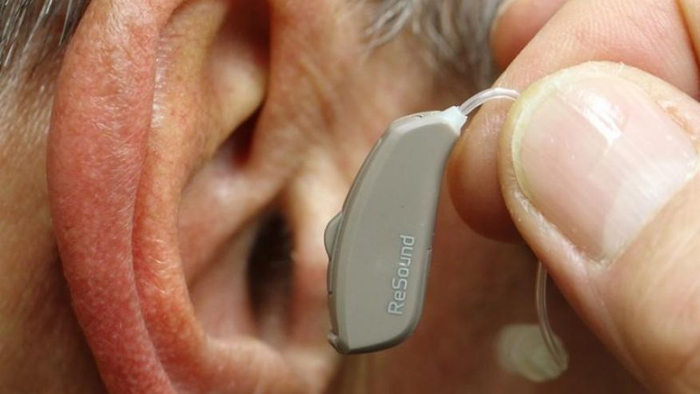"In the simplest terms, the worse the patient`s hearing loss, the greater the risk of death," lead author Kevin Contrera said of the study`s findings.
Past research has linked hearing problems to a variety of negative health effects, but few studies have looked directly at mortality risk, Contrera and his colleagues write in JAMA Otolaryngology-Head and Neck Surgery.
Two thirds of adults over 70 experience hearing impairment, said Contrera, a medical student at Johns Hopkins University School of Medicine in Baltimore, Maryland.
He and his colleagues looked at data on 1,666 adults from a nationally representative survey conducted in 2005-2006 and 2009-2010, as well as death records through the end of 2011.
The people included in the analysis were all over age 70 and had undergone hearing testing. Using World Health Organization criteria to define hearing impairment, and accounting for individuals` age, the researchers found that people with moderate or severe hearing impairment had a 54 percent greater risk of dying than those with normal hearing. Mild hearing impairment was linked to a 27 percent increased risk.
The researchers then also adjusted for more variables that could influence hearing and death risk, including sex, race, and education, as well as heart risk factors, like stroke, smoking, diabetes, high blood pressure and heart disease.
Even after accounting for those factors, the study team found that people with moderately or severely impaired hearing had a 39 percent higher risk of death than those without hearing problems, and those with mild hearing impairment had a 21 percent greater risk.
Piers Dawes, who was not involved in the new study, notes that hearing impairment can directly affect a person`s health and wellbeing.
Older people with hearing loss tend to have more difficulty with communication, are more socially isolated, and are less able to care for their own long-term health conditions, said Dawes, a hearing loss researcher who teaches at the University of Manchester in the U.K.
"These sorts of secondary problems could potentially impact on health, wellbeing and mortality," he said.
The study observed the link between hearing problems and death, but more research is needed to know if hearing loss is somehow a contributing cause, Contrera cautioned.
For instance, the researchers did not investigate whether treating hearing impairment reduces the risk of death, which would help to clarify the relationship.
In his own research, Dawes noted, "Among people with hearing loss, hearing aid use was linked to better communication and better general health, but not with reduced risk of mortality."
A majority of older people suffer from hearing impairment, Dawes said, and hearing loss could just be a marker of being older and sicker in general.
Although the study focused on seniors, the findings may have value for people of all ages, Contrera said. "Although hearing loss is most common in older ages, certainly the earlier the treatment, the better," he said in an email.
Addressing hearing problems using "communication tactics, hearing aids, or wireless communication devices could promote social engagement, increased physical activity and better communication with doctors and other health professionals," Dawes said
These positive effects could, in turn, reduce mortality risk, he said.
"Hearing loss should be appropriately identified and treated in patients whenever possible," Contrera said.
More about:
















































